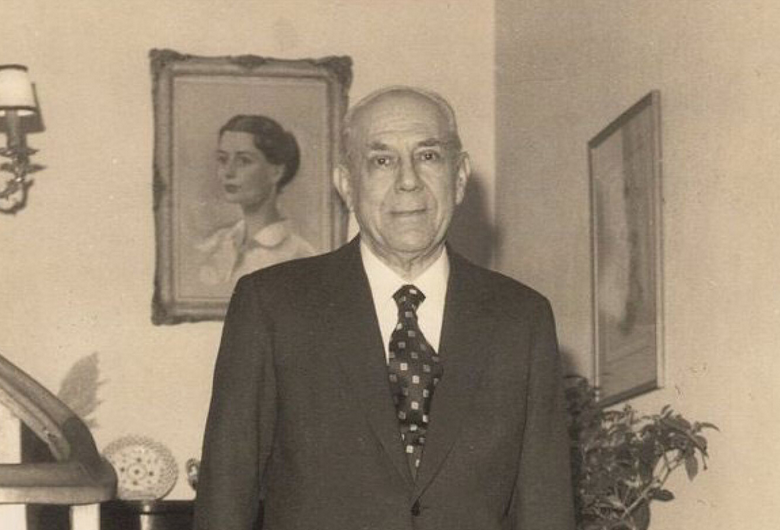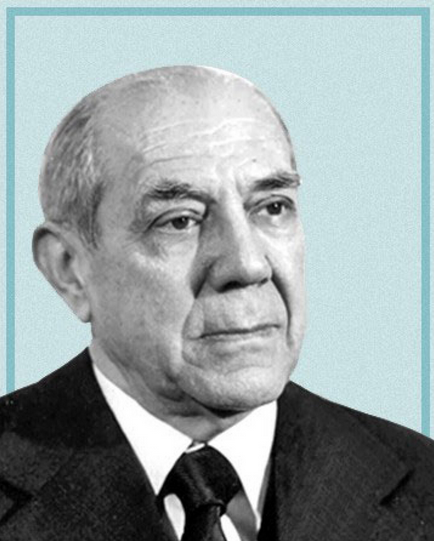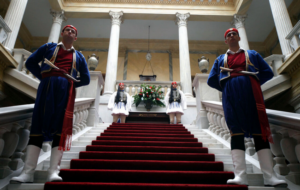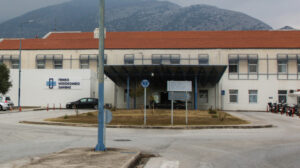As is well known, on Wednesday, January 15, 2025, Prime Minister Kyriakos Mitsotakis proposed Konstantinos Tasoulas, the former Speaker of the Hellenic Parliament, as the new President of the Hellenic Republic. He is the second politician from Ioannina to ascend to the country’s highest office, following the late Karolos Papoulias (1929–2021), who served as President of the Republic from 2005 to 2015 (two terms). After the Epirus of benefactors, the Epirus of Presidents is cautiously emerging!
But how many and who were the Presidents of the Hellenic Republic after the Metapolitefsi and the abolition of the monarchy? If we include, as we certainly should, the first Provisional President of the Republic after the Metapolitefsi, Michael Stasinopoulos, eight individuals, among them one woman, the outgoing President, Ms. Katerina Sakellaropoulou, have held the highest institutional office in our country. Three of them (K. Karamanlis, K. Stephanopoulos, and K. Papoulias) served two terms, the maximum allowed by the Constitution. Konstantinos Karamanlis did not serve consecutive terms, as the presidency of Christos Sartzetakis (1985–1990) intervened, unlike K. Stephanopoulos and K. Papoulias, whose terms were consecutive. Let us examine more details about the seven former Presidents of the Republic and the sole former female President, Ms. Sakellaropoulou.
Michael Stasinopoulos: The “unknown President” with the impressive résumé (12/18/1974–6/20/1975)
After the 1974 Referendum and the establishment of the Republic (Presidential Parliamentary Democracy, to be precise) as the country’s system of government, the distinguished legal scholar, politician, academic, and author Michael Stasinopoulos was elected Provisional President of the Republic with 206 votes. He was the first candidate on the ND’s nationwide list in the November 1974 elections. He may be unfamiliar to the general public, particularly younger generations, but he was a very significant figure, rare in today’s world. He was born in Kalamata in 1903. He studied at the Faculty of Law of the University of Athens, from which he earned his doctorate in 1934. In 1937, he began his judicial career at the Council of State as an Associate Judge. In 1966, he became President of the Council of State.


After the coup by the Colonels, he clashed with them until 1968-69, refusing to resign and eventually being removed by the junta. René Cassin, President of the French Council of State and Nobel Peace Prize laureate, nominated him for the Nobel Peace Prize for his resistance to the junta. That year, the Nobel Peace Prize was awarded to German Chancellor Willy Brandt, the architect of the Neue Ostpolitik. Cassin persisted and, in 1970, proposed awarding the Nobel Peace Prize to the Greek judges, led by Michael Stasinopoulos, for their anti-dictatorial actions. That year, the Nobel Peace Prize was not awarded to anyone.
Stasinopoulos also served in governments, was an Academician (since 1968), President of the Academy in 1978, a Professor at the National and Kapodistrian University of Athens and Panteion (now Panteion University), an author, and more. As President of the Republic, he did not have to make decisions of critical importance, but when he needed to make public statements, he aligned with government policy. However, a notable contribution was his purging of the Presidency of the Republic from individuals with sympathies toward the junta. He passed away in 2002.
Konstantinos Tsatsos: The “Philosopher President” (6/20/1975–May 1980)
After the implementation of the new Constitution, which the opposition claimed granted “excessive powers” to the President of the Republic, the Parliament convened on 6/19/1975 to elect a President under the new Constitution and elected Konstantinos Tsatsos (1899–1987) with 210 votes out of 295 present.
Tsatsos’ father, Dimitrios Tsatsos, was a lawyer in Athens and a Member of Parliament for Evrytania, while his mother, Theodora Efstratiadi, was his inspiration. Tsatsos attended the private Makris School and then enrolled in the Faculty of Law at the University of Athens, graduating with honors. At the end of World War I, he participated in the Greek Diplomatic Mission in Paris, closely following the signing of the Treaties of Versailles, Neuilly, and Sèvres. During this time, he became acquainted with Eleftherios Venizelos, whom he greatly admired. Until 1923, he served in the military as a liaison with the French Military Mission stationed in Greece.

After completing his postgraduate studies in Heidelberg, Konstantinos Tsatsos returned to Athens. In 1929, he earned his Doctorate in Law, became a Lecturer in 1930, and in 1932, was appointed Associate Professor in the Faculty of Law, specializing in the Introduction to Legal Science and Philosophy of Law. During the Metaxas dictatorship, he was arrested and exiled to Skyros until 1941. He was dismissed from the university and later fled to the Middle East.
He had a younger brother, Themistoklis (1906–1970). Tsatsos married twice: first to Lili Zorini (1925–1929) and later to Ioanna Seferiadi, the sister of poet Giorgos Seferis, with whom he had two daughters, Despina and Theodora (Dora).
In 1944, Tsatsos became a Full Professor in the Faculty of Law and gradually became involved in politics. In 1956, he joined the National Radical Union (ERE) founded by Konstantinos Karamanlis, with whom he was a close collaborator. As Minister to the Prime Minister’s Office in 1956, he issued orders to “crush,” as he himself stated, demonstrators in Athens protesting in support of EOKA’s struggle in Cyprus. This crackdown resulted in three deaths and numerous injuries—actions unbecoming of an intellectual. This incident is considered a “black mark” in Tsatsos’ political career. He was also accused of financial scandals but was ultimately acquitted. In 1961, he became an Academician.
After Karamanlis fled to Paris, Tsatsos became Minister of Justice until April 21, 1967.
During the military junta, Tsatsos did not engage in notable anti-dictatorial actions. Third on New Democracy’s national list in the 1974 elections (following Michael Stasinopoulos and Eleni Vlachou), he chaired the committee for drafting the new Constitution. As previously mentioned, on June 20, 1975, he assumed the role of President of the Republic.
A trusted ally of Karamanlis, Tsatsos agreed to certain conditions for his presidency (as detailed in his Memoirs): he would step down before completing his five-year term if Karamanlis wished to take the office, he would not use his position to overshadow Karamanlis, and he would not create issues for the government.
As President, Tsatsos made very few international trips. Karamanlis bore the responsibility for Greece’s accession to the European Economic Community (EEC). Tsatsos never exercised his legal right to return laws and decrees for reconsideration and issued only a few legislative decrees.

His literary and scientific work was notable. He first appeared in literature under the pen name Ivos Delfos (or Delphos?). On the official website of the Presidency of the Republic, it is listed as Yvos (which means “hump” in Greek!), while elsewhere it is written as Yvos (meaning “hunchback”). Although we thought it was highly unlikely that this was true, we searched for one of his poems, where he signs as H. DELFOS (without the accent). It would be wise to correct the tragic Yvos on the official website of the Presidency.
Konstantinos Karamanlis: The “National Leader” and the maneuvers for his first election in 1980
Konstantinos Karamanlis’ election to the presidency in 1980 was far from easy. Already, in the 1977 elections, his party’s percentage had dropped significantly, while Andreas Papandreou’s PASOK experienced a rapid rise. By the three-year period leading up to 1980, it was clear that PASOK would be the leading party in the next elections. Konstantinos Karamanlis, who likely could not accept defeat, decided that it was time for him to become President of the Republic. However, he needed at least 180 votes in the third round of voting (the required 200 in the first and second rounds were unattainable). The New Democracy party did not have the required number of MPs. Therefore, Karamanlis quickly turned to the smaller parties that had elected MPs in the 1977 elections.

The “Liberals” of Konstantinos Mitsotakis had elected two MPs in Crete in 1977: Mitsotakis himself in Chania and Pavlos Vardinogiannis in Rethymno. Karamanlis “made sure” to integrate the “Liberals” into the New Democracy party on May 10, 1978, by offering the Ministry of Coordination to Konstantinos Mitsotakis. His next target was the pro-junta and pro-monarchy party National Alignment. In 1977, it had elected five MPs (H. Apostolakis, S. Theotokis, who assumed the leadership of the party in Parliament, since its leader Stefanos Stefanopoulos failed to get elected, the Muslim Hasan Imamoglu, K. Oikonomopoulos, and G. Papaefthymiou). The party dissolved due to significant disagreements over the election of the President of the Republic in 1980.
The same had happened with EDIK (Democratic Alignment). Karamanlis had ensured that Athanasios Kanellopoulos, who had been elected with EDIK in 1978, was also integrated into New Democracy, with the “reward” of the Ministry of Finance. Just before the end of Tsatsos’ term, in April 1980, the New Democracy parliamentary group decided to propose Konstantinos Karamanlis as President of the Republic. On April 23, 1980, Karamanlis did not vote, receiving 179 votes. On April 29, 1980, the second vote was held, but despite receiving 181 votes, Karamanlis, who again did not vote, was not elected because 200 votes were required. However, in the third vote, on May 5, 1980, Karamanlis voted and was elected President of the Republic.

The election of Konstantinos Karamanlis to the Presidency of the Republic in 1980 had significant political and historical consequences. He received 177 votes from New Democracy (including the votes of the expelled Gon-tikas and Pneumatikos), three from the National Alignment party (Apostolakis, Imamoglu, and Papaefthymiou), votes from the EDIK MPs Ioannis Sergakis and Stylianos Choutas, and from Dimitrios Kardaras, a member of KODISO, which was formed by former EDIK members.
A common error in some articles about the election is the claim that Stylianos Choutas belonged to the National Alignment. This is a serious mistake, as Choutas was a centrist politician and not associated with right-wing or pro-junta parties. He had been a prominent figure in Greek politics, especially noted for his role as a hero in WWII.
By May 1980, with a clear shift in public opinion and a rising challenge from the socialist PASOK party, the New Democracy (ND) parliamentary group proposed Karamanlis as President. Karamanlis’ election was confirmed after three voting rounds, with the final victory secured on May 5, 1980, after receiving the required 180 votes.
However, the 1980 election of Karamanlis as President coincided with a significant political shift in the country, which eventually culminated in the rise of PASOK. In the October 1981 elections, PASOK, led by Andreas Papandreou, decisively won, marking a major shift in Greece’s political landscape. Papandreou’s policy priorities were starkly different from Karamanlis’ pro-Western stance, leading to a period of political tension, particularly on foreign policy.
The relationship between Karamanlis, as President, and Papandreou, as Prime Minister, was one of difficult coexistence, with both men holding strong, but opposing views. Despite their differences, they understood the importance of avoiding direct confrontation, recognizing that such a conflict could destabilize the country. Karamanlis, with his strong European ties, sought to maintain Greece’s position within the European Economic Community (EEC), while Papandreou focused on a more independent foreign policy, including a push for a special relationship with the EEC and a desire to reduce foreign military presence in Greece.
Through mutual concessions and careful negotiation, they were able to navigate this complex political situation, ultimately leading to Greece’s continued alignment with the West. Their coexistence also contributed to the political stability that followed, despite the challenges of the era. Karamanlis’ reluctance to interfere in matters of domestic policy under the Papandreou government, despite occasional critiques from within New Democracy, helped ensure a smoother transition into the new political reality.

The rift between Karamanlis and Papandreou – The adventurous election of Christos Sartzetakis as President of the Republic
And while everything seemed to indicate that the relationship between the two men was harmonious and that Papandreou would once again propose Karamanlis for President, the unpredictable Andreas surprised everyone. On March 9, 1985, he announced to the Central Committee of PASOK constitutional reforms that drastically limited the presidential powers and duties and proposed Judge Christos Sartzetakis for President of the Republic. Andreas Papandreou’s 180-degree turn was largely due to the pressure from the grassroots of the party not to propose Karamanlis. It was reported at the time that Giorgos Kouris, publisher of the “Avgi” newspaper, which supported PASOK but was strongly anti-Karamanlis, went to Maximos Mansion with a huge sack containing tens of thousands of letters from readers of the newspaper who were attacking Karamanlis. K. Karamanlis resigned on the same day (March 9, 1985), and according to the Constitution, the duties of the President of the Republic were assumed by the President of Parliament, Ioannis Alevras. The first round of the presidential elections was held on March 17, 1985.

Christos Sartzetakis was not voted for by all PASOK MPs (two cast blank ballots), but he was voted for by the 13 MPs of the KKE! It was the first and last time that the KKE voted for someone as President of the Republic. The KKE now declares that it disagrees with the institution. Let it tell us which institution it agrees with, though… However, the required number of 200 votes was not gathered. The second vote, on March 23, was marked by the colored (vermillion) ballots distributed to MPs, the spotlight placed over the ballot box by Papandreou’s order, and the theft of the ballot box by New Democracy MP from Ioannina, Eleftherios Kalogiannis, who took it to the New Democracy offices! The ballot box was returned to the Parliament chamber, and the voting continued, but Christos Sartzetakis was not elected. Finally, in the third vote on March 23, 1985, and with the vote of Ioannis Alevras, which New Democracy leader Konstantinos Mitsotakis considered irregular, Christos Sartzetakis (1929-2022) was elected President with 180 votes. New Democracy did not recognize his election, a stance it changed after its defeat in the June 1985 parliamentary elections.

Christos Sartzetakis was a judge, born in Thessaloniki. He studied law and practiced as a lawyer starting in 1954. In 1960, after a competition, he entered the judicial system as an examining magistrate in the First Instance Court. As a first-instance judge, he served as the investigator in the case of the assassination of MP Grigoris Lambrakis in 1963, performing his duties with determination and impartiality, defying the pressures he faced. From 1965, he dedicated himself to studying EEC law in Paris. After the coup of April 21, 1967, he was recalled to Athens and dismissed in May 1968. He was then imprisoned for a year, until November 1971, but continued to oppose the Junta. He was reinstated as an appellate judge in 1974 and promoted to a Supreme Court judge in October 1982. As stated in the Papyros-Larousse-Britannica encyclopedia: “During his tenure, he defended the Greek Idea with ceremonial speeches, proclamations, and essays, repeatedly supporting Greek national rights and the uniqueness of the Greek nation as an ‘orphaned’ race in the context of European and non-European ethnic groups.”
It should be noted that one of the “suspect” PASOK MPs who did not vote for Christos Sartzetakis in the first vote was Evangelos Pentaris, whose family had a vendetta with the Sartzetakis family. Pentaris, who was from Chania but elected in Piraeus, went to the next vote openly holding the ballot with Sartzetakis’ name and burst into tears while voting…
1990: Konstantinos Karamanlis as President of the Republic again
On April 8, 1990, parliamentary elections were held in Greece. These were early elections triggered by the inability to elect a President of the Republic, as under the Constitution at that time, after three unsuccessful votes for the election of the President, the Parliament had to be dissolved and new elections called. The first party was New Democracy (ND) led by Konstantinos Mitsotakis, with 46.89% and 150 seats. On April 30, 1990, a vote for President of the Republic was held (151 votes were required for election). Konstantinos Karamanlis (ND) received 149 votes, Ioannis Alefras (PASOK) 123, and Konstantinos Despotopoulos (Unified Left Coalition) 21. Finally, in the vote on May 4, 1990, Karamanlis received 153 votes (150 from ND, 1 from the DIANA MP and later ND member Theodoros Katsikis, and 2 from the independent Muslim MPs Sadik and Faikoglou). The “cohabitation” of Konstantinos Karamanlis and Konstantinos Mitsotakis lasted until October 1993, when early elections were held (October 10, 1993) after the fall of the ND government. PASOK, led by Andreas Papandreou, triumphed with 46.88% and 170 MPs, New Democracy with 39.30% elected 111 MPs, the Political Spring, led by Antonis Samaras, had 4.88% and 10 MPs, and the KKE had 4.54% and 9 MPs. The Coalition of the Left and Progress, led by Maria Damanaki, with 2.94%, did not reach the 3% threshold and was excluded from Parliament.
1995-2005: Konstantinos Stefanopoulos, President of the Republic
The problem for PASOK was significant in 1995, as it could not elect a President of the Republic with just its own MPs. The proposal from the Political Spring for the conservative Achaean politician Konstantinos Stefanopoulos (1926-2016) came as a godsend for the ruling party. Stefanopoulos was elected President of the Republic with 181 votes, against 109 for the ND candidate Athanasios Tsaldaris in the third vote. Stefanopoulos studied law in Athens and practiced law in Patras (1954-1974). A member of ERE since 1958, he was first elected as an MP in 1964. As an MP for ND, he served as Deputy Minister and Minister in its governments since 1974. He unsuccessfully contested the leadership of ND twice, leaving in 1985 to form the Democratic Renewal (DIANA), which ceased its activities in 1994.

In 2000, he was re-elected President with 265 votes out of a total of 298 present. He performed his duties excellently, and many consider him the best President of the Republic, with the pinnacle being his critical speech about the United States in front of Bill Clinton during the latter’s visit to Athens in the fall of 1999. He refused to hold a referendum, as requested by the blessed Archbishop Christodoulos, on the issue of identity cards, as such a thing was not constitutionally provided. In January 2000, he visited the Vatican and invited the Pope to Greece. Pope John Paul II became, on May 4, 2001, the first Pope to visit Greece since the definitive Schism of the Churches (1054). Konstantinos Stefanopoulos was particularly popular due to the impeccable manner in which he performed his duties.
2005-2015: Karolos Papoulias, the President from Epirus
In December 2004, then Prime Minister Kostas Karamanlis proposed a rather unexpected candidate for President of the Republic. It was the politician from Epirus (born in the remote village of Molyvdoskepastos in the Ioannina region), Karolos Papoulias, a long-time MP for PASOK and a collaborator of Andreas Papandreou. In the very first vote, on February 8, 2005, Karolos Papoulias (1929-2021) was elected President with 279 votes (163 from ND and 116 from PASOK). On February 3, 2010, he was re-elected President with 266 votes (out of 298 voters). Karolos Papoulias studied law in Athens and continued his studies in Milan and Cologne, where he obtained a doctorate. From 1967 to 1974, he collaborated with Deutsche Welle, denouncing the junta regime.

In 1974, he joined PASOK and was elected as a member of parliament for Ioannina from 1977 until 2000. In the 2004 elections, he was the first substitute after Vangelis Argyris and Michalis Pantoulas. He served multiple times as Minister and Deputy Minister in PASOK governments. His contribution as Minister of Foreign Affairs was particularly important in the rapprochement between Greece and the Arab world. A big mystery for many will remain the contents of the message from Andreas Papandreou to the then-President of Bulgaria, Zhivkov, which Karolos Papoulias conveyed during the crisis with Turkey in March 1987.
2015: Prokopis Pavlopoulos, the “Academic President”
After the failure of the Samaras government in December 2014 to elect a President of the Republic (the candidate was Stavros Dimas), the country was led to early elections. In the elections of January 25, 2015, the first party was SYRIZA, led by Alexis Tsipras, who, with the cooperation of the Independent Greeks (ANEL) led by Panos Kammenos, formed a government. After many deliberations, the candidate for President was proposed to be Prokopis Pavlopoulos, a former member of New Democracy (ND). On February 18, 2015, Mr. Pavlopoulos was elected President with 233 votes. Nikos Alivizatos’ candidacy received 30 votes (from PASOK and To Potami), while 32 MPs (from KKE and Golden Dawn) voted “present.”

Among the five MPs who were absent from the vote was the current Prime Minister Kyriakos Mitsotakis. Prokopis Pavlopoulos (born in Kalamata, 1950) is a distinguished legal expert with studies in Athens and Paris. Starting his academic career in 1980 as a Lecturer in the Chair of Public Law at the Law School of the National and Kapodistrian University of Athens (EKPA), he became a Full Professor of Administrative Law in 1989. From 1996 to 2012, he was elected as an MP in Athens A with New Democracy (ND). From 2004 to 2009, he served as a minister in the governments of Kostas Karamanlis. Since October 2022, he has been elected a Regular Member of the Academy of Athens.
2020: Ekaterini Sakellaropoulou, the First Female President of the Republic
Many expected that Kyriakos Mitsotakis, who was now the prime minister, would propose Prokopis Pavlopoulos for a new term in 2020. However, this did not happen. On January 15, 2020, Kyriakos Mitsotakis announced the candidacy of Ekaterini Sakellaropoulou, the President of the Council of State (StE), for the Presidency of the Republic. On January 22, 2020, Mrs. Sakellaropoulou was elected President with 261 votes.

Born in Thessaloniki in 1956, Ekaterini Sakellaropoulou studied Law at the National and Kapodistrian University of Athens (EKPA) and pursued postgraduate studies in Paris. In 1982, she was appointed as a junior judge at the Council of State (StE). She became a Councillor in 2000 and a Senior Councillor in 2004. As a rapporteur in many significant cases, she also served as the President of the Judges’ Union of the StE. Between 2005 and 2014, she taught Environmental Law at the National School of Judges. From October 17, 2018, until her election as President of the Republic, a position she would most likely be succeeded in by lawyer Konstantinos Tasoulas, she was President of the StE. She became the first female President of the Republic in the history of modern Greece.
Konstantinos Tasoulas
Konstantinos Tasoulas was the candidate chosen by Prime Minister Kyriakos Mitsotakis to succeed Ekaterini Sakellaropoulou as President of the Republic.
The recently retired President of the Hellenic Parliament, born in Ioannina in 1959, is married to Fani Stathopoulou, and they have two children.
He studied at the Law School of the University of Athens and worked in a law firm in London during 1988-89 as a British Council scholar.
He was first elected as an MP in 2000 in the Ioannina constituency with New Democracy (ND). He was re-elected in the parliamentary elections of 2004, 2007, 2009, 2012 (twice), 2015 (twice), 2019, and 2023 (twice).
In 2006, he was appointed Deputy Parliamentary Spokesman for New Democracy by then-Prime Minister Kostas Karamanlis, and in 2007, he became Deputy Minister of National Defense.
In February 2010, he was elected General Secretary of the ND Parliamentary Group, and in 2014, during the Samaras government, he was appointed Minister of Culture and Sports until January 2015.
In 2018, he was the General Rapporteur for the Constitutional Revision, and in 2019, he was proposed by Prime Minister Kyriakos Mitsotakis for the leadership of the Hellenic Parliament. He was elected Speaker of the Parliament with 283 votes and re-elected with 270 votes in May 2023 and 249 votes in June of the same year.
Mr. Tasoulas served as the personal secretary to the late Evangelos Averoff-Tositsas, Honorary President of New Democracy, from 1981 to 1990, and as a special advisor to the Ministries of National Economy, Commerce, and Agriculture (1989-1990).
He was also President of the Export Promotion Organization (OPE) from 1990 to 1993.
In 1990, he was elected as a Municipal Councilor for Kifisia and in 1994 became Mayor of Kifisia.
In June 2013, he was appointed President of the Konstantinos Karamanlis Democracy Institute.
Mr. Tasoulas is not one of the “loud” politicians, though he is noticed for his phlegmatic humor and deep historical and literary knowledge, which he regularly incorporates into his political interventions.

Ask me anything
Explore related questions





